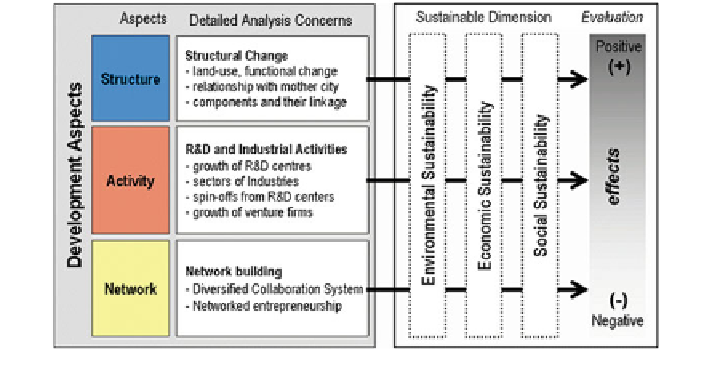Civil Engineering Reference
In-Depth Information
that sustained poverty leads to sustained colonization and exploitation of nat-
ural resources (Khan
1995
). Therefore, social scientists contend that pursuing
social sustainability (e.g., increasing equality in resource distribution, acces-
sibility to services, decision-making opportunities, poverty alleviation, etc.) is
the key to preservation of environmental sustainability.
3. Economic sustainability: this implies that human-made capital, and its surro-
gate (money) must be maintained or improved for sustainable development.
This traditional view of economic sustainability places undue reliance on the
capacity of the market to encourage the efficient allocation of resources (Khan
1995
). The assumptions are: (1) the supply of natural resources is unlimited,
and (2) the power of technology will help replenish whatever natural resources
are destroyed in the process.
This research uses these three key domains (environmental, social, and eco-
nomic sustainability) of sustainability as an evaluation framework for assessing the
level of DST's progress toward sustainability.
3 Research Methodology and Evaluation Framework
This study offers an analyzing framework to examine the experience of DST in-
depth. This highlights the ways in which the technopolis policy has provided a
framework for local efforts to promote regional innovation and economic growth
in the sustainable context. The framework contains the aspects of technopolis
development (structure, activity, and network) and evaluation dimensions of their
sustainability (environment, equity, and futurity). Figure
1
presents an evaluation
framework, which was devised and applied throughout the case study analysis.
Fig. 1
Analysis framework

Search WWH ::

Custom Search